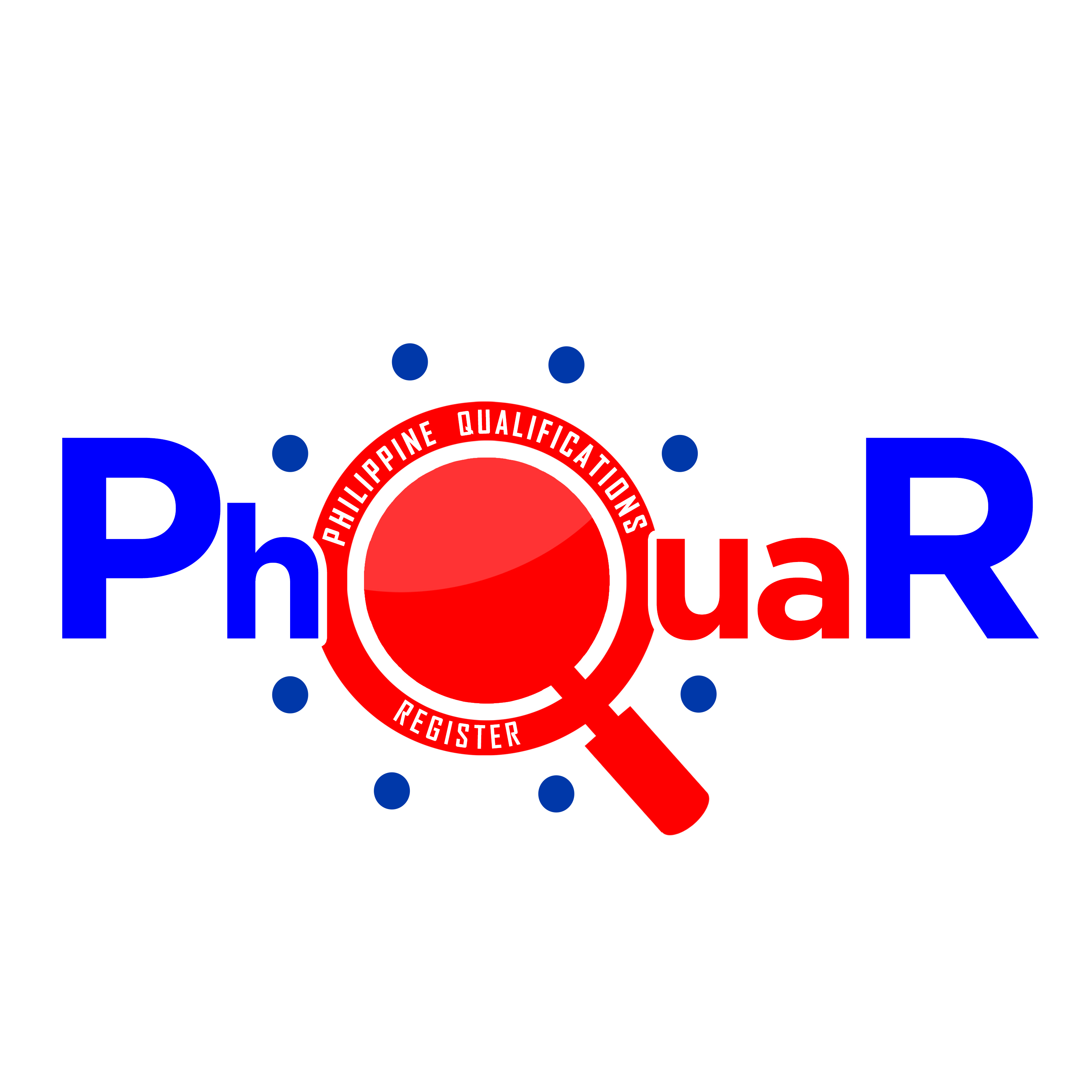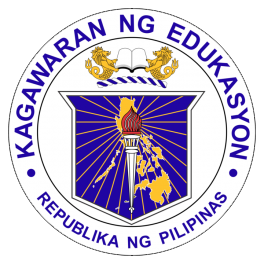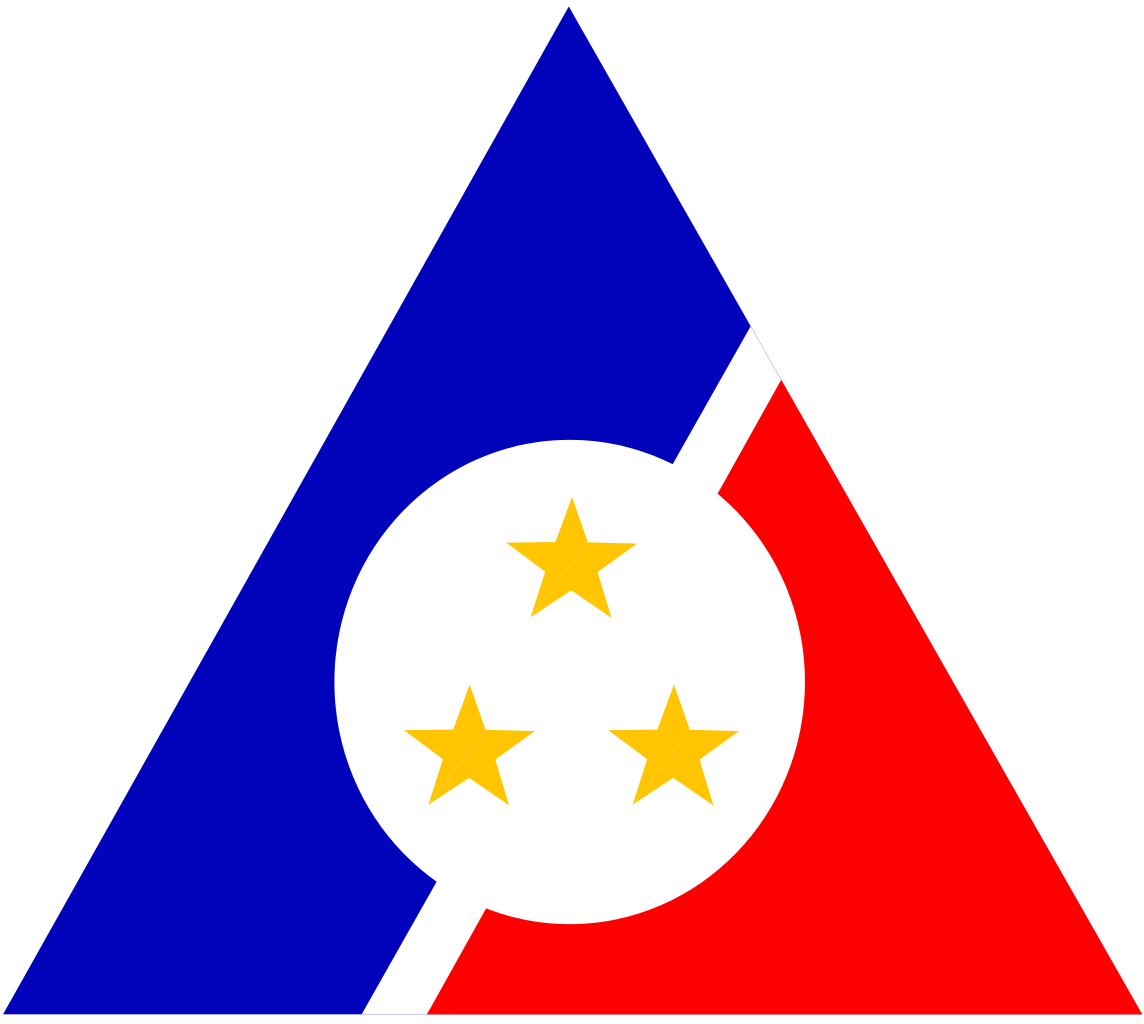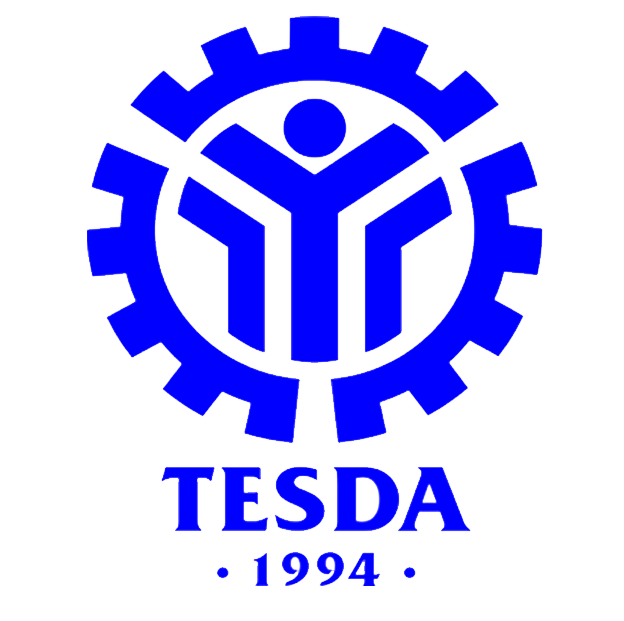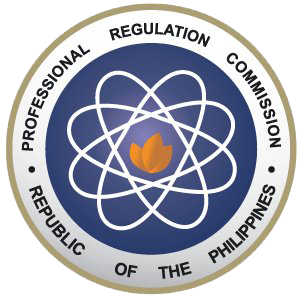Register of Qualifications
Search Qualifications
| Qualification Code | Qualifications | Descriptor | Level | Authority Granting Agency |
Instrument (PSG/CMO/Board Resolution) |
Date of Authorization |
|---|---|---|---|---|---|---|
| 60215 | Bachelor of Performing Arts | The BACHELOR OF PERFORMING ARTS program comprise mandatory course components in theory and criticism, aesthetics and semiotics, music, movement and choreography. The program has two tracks: dance and theater.Graduates of the program should be able to:1) To interpret performances as product of different contexts and perspectives. 2) To explore and articulate the role of the Filipino performer in the inculcation and enrichment of traditions and innovations of national culture. 3) Recognize the need for and demonstrate the ability for lifelong learning. 4) Identify multi-perspectives and interrelations among texts and contexts. 5) Apply analytical and interpretive skills in the study of texts. 6) Discuss and/or create artistic forms. 7) Demonstrate research skills specific to the sub-disciplines in the humanities. 8) Use appropriate theories and methodologies critically and creatively. 9) Appraise the role of humanistic education in the formation of the human being and society. In addition, graduates of the Dance track should be able to: 1) To differentiate forms and genres in various times and spaces. 2) To demonstrate the knowledge of techniques and styles of dance in various traditional and contemporary practices. 3) To appraise dance in performance, choreography, and design in its totality and details. 4) To sustain initiatives for dance through performance, documentation and research of the art forms. In addition, graduates of the Theater track should be able to: 1) To distinguish different theater forms through specific aspects of artistic production. 2) To apply conceptual frameworks of performance in theatrical production. 3) To evaluate elements of theater as performance.4) To generate ideas on how to utilize theater in promoting local, regional and global perspectives. | VI | CHED | CMO No. 25, s. 2017 | 5/9//2017 - Present |
| 60613 | Bachelor of Science in Computer Science | The BACHELOR OF SCIENCE IN COMPUTER SCIENCE program includes the study of computing concepts and theories, algorithmic foundations and new developments in computing. It prepares students to design and create algorithmically complex software and develop new and effective algorithms for solving computing problems. The program also includes the study of the standards and practices in Software Engineering. It prepares students to acquire skills and disciplines required for desiging, writing and modifying software components, modules and applications that comprise software solutions. Graduates of the program should be able to: 1) Apply knowledge of computing fundamentals, knowledge of a computing specialization, and mathematics, science, and domain knowledge appropriate for the computing specialization to the abstraction and conceptualization of computing models from defined problems and requirements. 2) Identify, analyze, formulate, research literature, and solve complex computing problems and requirements reaching substantiated conclusions using fundamental principles of mathematics, computing sciences, and relevant domain disciplines. 3) An ability to apply mathematical foundations, algorithmic principles and computer science theory in the modeling and design of computer-based systems in a way that demonstrates comprehension of the tradeoffs involved in design choices. 4) Knowledge and understanding of information security issues in relation to the design, development and use of information systems. 5) Design and evaluate solutions for complex computing problems, and design and evaluate systems, components, or processes that meet specified needs with appropriate consideration for public health and safety, cultural, societal, and environmental considerations. 6) Create, select, adapt and apply appropriate techniques, resources and modern computing tools to complex computing activities, with an understanding of the limitations to accomplish a common goal. 7) Function effectively as an individual and as a member or leader in diverse teams and in multidisciplinary settings. 8) Communicate effectively with the computing community and with society at large about complex computing activities by being able to comprehend and write effective reports, design documentation, make effective presentations, and give and understand clear instructions. 9) An ability to recognize the legal, social, ethical and professional issues involved in the utilization of computer technology and be guided by the adoption of appropriate professional, ethical and legal practices. 10) Recognize the need, and have the ability, to engage in independent learning for continual development as a computing professional. | VI | CHED | CMO No. 25, s. 2015 | 8/3/2015 - Present |
| 60613 | Bachelor of Science in Information Systems | The BACHELOR OF SCIENCE IN INFORMATION SYSTEMS program includes the study of application and effect of informmation technology to organizations. Graduates of the program should be able to implement an informmation system, which considers complex technological and organizational factors affecting it. These include components, tools, techniques, strategies, methodologies, etc. Graduates are able to help an organization determine how information and technology-enabled business processes can be used as strategic tool to achieve a competitive advantage. Graduates of the program should be able to: 1) Apply knowledge of business processes, computing, mathematics and social sciences appropriate to Information Systems. 2) Analyze a problem, identify and define the computing requirements with respect to organizational factors appropriate to its solution and plan strategies for their solution. 3) Evaluate information systems in terms of general quality attributes and possible trade-offs presented within the given requirement. 4) Design, implement, and evaluate information systems, processes, components, or programs and to source cost-benefit efficient alternatives to meet desired needs, goals and constraints. 5) Use knowledge and understanding of enterprises in modelling and design of information sy.stems 6) Deploy and use effectively skills, tools and techniques necessary for information systems practice. 7) Function effectively on teams(recognizing the different roles within a team and different ways of organizing teams) to accomplish a common goal. 8) Communicate effectively with a range of audiences. Communication skills includes techincal writing, presentation and neogitation, and numeracy. 9) Recognize the legal, social, ethical and professional issues involved in the exploitation of computer technology and be guided by the adoption of appropriate professional, ethical and legal practices both in the local and global community. 10) Recognize the need for and engage in an independent and life-long learning, planning self-learning and improving performance as the foundation for on-going professional development. | VI | CHED | CMO No. 25, s. 2015 | 8/3/2015 - Present |
| 60613 | Bachelor of Science in Information Technology | The BACHELOR OF SCIENCE IN INFORMATION TECHNOLOGY program includes the study of the utilization of both hardware and software technologies involving planning, installing, customizing, operating, managing and administering, and maintaining information technology infrastructure that provides computing solutions to address the needs of an organization. The program prepares graduates to address various user needs involving the selection, development, application, integration and management of computing technologies within an organization. Graduates of the program should be able to: 1) Apply knowledge of computing, science, and mathematics appropriate to the discipline. 2) Understand best practices and standards and their applications. 3) Analyze complex problems, and identify and define the computing requirements appropriate to its solution. 4) Identify and analyze user needs and take them into account in the selection, creation, evaluation and administration of computer-based systems. 5) Design, implement, and evaluate computer-based systems, processes, components, or programs to meet desired needs and requirements under various constraints. 6) Integrate IT-based solutions into the user environment effectively. 7) Apply knowledge through the use of current techniques, skills, tools and practices necessary for the IT profession. 8) Function effectively as a member or leader of a development team recognizing the different roles within a team to accomplish a common goal. 9) Assist in the creation of an effective IT project plan. 10) Communicate effectively with the computing community and with society at large about complex computing activities through logical writing, presentations, and clear instructions. 11) Analyze the local and global impact of computing information technology on individuals, organizations, and society. 12) Understand professional, ethical, legal, security and social issues and responsibilities in the utilization of information technology.13) Recognize the need for and engage in planning self-learning and improving performance as a foundation for continuing professional development. | VI | CHED | CMO No. 25, s. 2015 | 8/3/2015 - Present |
| 60211 | Bachelor of Science in Entertainment and Multimedia Computing | ENTERTAINMENT ND MULTIMEDIA COMPUTING is the study and use of concepts, principles, and techniques of computing in the design and development of meltimedia products and solutions. It includes vrious applications such as in science, entertainnment, education, simultions and advertising. The program enables the students to be knowledgeable of the whole pipeline of Game Development and Digital Animation projects. Specializations may include Game Development and Digital Animation-Technology. Graduates of the program should be able to: 1) Apply knowledge of mathematics, physical sciences, computing sciences to the practice of being and entertainment and multimedia computing professional. 2) Apply specialized computing knowledge in each applicable field and provide solutions to actual problems. 3) Know contemporary issues. 4) Analyze project requirements and to design and implement project prototypes. 5) Recognize, formulate, and solve computing problems. 6) Design, build, improve, and deploy products that meets client needs within realistic constraints. 7) Use the appropriate techniques, skills and modern computing tools necessary for the practice of being a professional game developer or animator. 8) Work effectively in multi-disciplinary and multi-cultural teams. 9) Effectively communicate orally and in writing using the English language. 10) Understand and assess local and global impacts of computing on society relevant to professional computing practice and subscription to accepted industry standards. 11) Understand the effects and impact of entertainment and multimedia computing projects on nature and society, and of their social and ethical responsibilities. 12) Create or use modified artifacts in consideration of intellectual property rights of the author. 13) Engage in life-long learning and an acceptance of the need to keep current of the development in the specific field of specialization. 14) Demonstrate original creative outputs.15) Demonstrate innovativeness in their outputs. | VI | CHED | CMO No. 02, s. 2014 | 1/13/2014 - Present |
| 60322 | Bachelor of Library and Information Science | The BACHELOR OF LIBRARY AND INFORMATION SCIENCE program is the study of the development, deployment, and management of information resources in print, non-print, electronic and digital formats and services. Graduates of this program are being prepared to appy information technology to basic library operations and functions. Moreover, they are trained to harness a range of bibliographical and online tools to support teaching, research, and other services. They are likewise expected to systematically organize, conserve, preserve and resore information objects (e.g. realia, museum pieces), historical and cultural documents (e.g. artifacts, archival documents, indigenous knowledge), and other intellectual properties (creative ideas and works by individuals and groups). Graduates of the program should be able to: 1) Select, evaluate, organize and disseminate print, multimedia, electronic and digital information resources. 2) Effectively communicate orally and in writing, at the same time, use a variety of communication methods in a manner that best enables the message to be understood. 3) Demonstrate logical and systematic approaches to the accomplishment of tasks. 4) Formulate objectives, policies and processes as well as design and manage resources in anticipation of future educational or organizational changes. 5) Recognize, analyze and constructively solve problems, provide appropriate direction and assistance, and overcome barriers when necessary. 6) Identify users' needs and wants through reference interviews, customer surveys, complaint logs and other means in order to evaluate the effectiveness of current services and improve these and other practices. 7) Work well in groups and seek ways to build team efforts to solve problems and achieve common goals. 8) Understand library’s automation systems and the use of computer hardware, software and peripherals, including online collaboration tools (the Internet, the worldwide web, and social networking sites). 9) Develop information technology solutions (e.g., library automation system, Website, e-mail system, etc.. 10) Conduct significant research projects that will benefit the library and the organization. 11) Evaluate and debate information policy (e.g., copyright law, plagiarism, cybercrimes, etc.) and ethical issues applicable in local, national or global context. 12) Participate in continuing education activities organized by library associations and other entities. | VI | CHED | CMO No. 24, s. 2015 | 8/3/2015 - Present |
| 61041 | Bachelor of Science in Marine Transportation | The BACHELOR OF SCIENCE IN MARINE TRANSPORTATION program deals with the study of navigation, cargo handling and stowage, controlling the safe operation and care for persons on board the ship at the operational level. Graduates of the program should be able to: 1) Perform the competence at the operational level under Table A-II/1 and some elements of Table A-II/2 of the STCW Code. 2) Apply knowledge in mathematics, science and technology in solving problems related to the professon and the workplace. 3) Evaluate the impact and implications of various contemporary issues in the global and social context of the profession. 4) Engage in lifelong learning and keep abreast with developments in the field of specialization and/or profession. 5) Use appropriate techniques, skills and modern tools in the practice of the profession in order to remain globally competitive.6) Conduct research using appropriate research methodologies. | VI | CHED | CMO No. 67, s. 2017 | 8/15/2017 - Present |
| 60716 | Bachelor of Science in Marine Engineering | The BACHELOR OF SCIENCE IN MARINE ENGINEERING program deals with the study of marine propulsion system and its auxiliaries, its operation and maintenance as well as controlling the operation of the ship and care for persons on board at the operational level of marine engineering. It also deals with electrical, electronics and control engineering. Graduates of the program should be able to: 1) Perform the competence at the operational level under Table A-III/1 and some elements of Table A-III/2 of the STCW Code. 2) Apply knowledge in mathematics, science and technology in solving problems related to the professon and the workplace. 3) Evaluate the impact and implications of various contemporary issues in the global and social context of the profession. 4) Engage in lifelong learning and keep abreast with developments in the field of specialization and/or profession.5) Use appropriate techniques, skills and modern tools in the practice of the profession in order to remain globally competitive.6) Conduct research using appropriate research methodologies. | VI | CHED | CMO No. 67, s. 2017 | 8/15/2017 - Present |
| 60716 | Bachelor of Science in Naval Architecture and Marine Engineering | NAVAL ARCHITECTURE AND MARINE ENGINEERING is an engineering discipline which deals with the design, construction, maintenance and operation of marine vessels and structures as well as its machinery and engineering systems. Graduates of the program should be able to: 1) Apply knowledge of mathematics, science, naval architectural and marine engineering design to solve engineering problems. 2) Design and conduct experiments, as well as to analyze and interpret data.3) Design floating vessels, its fittings and powering to meet the required specifications within realistic constraints.4) Identify, formulate and solve naval architectural and marine engineering problems. 5) Understand the impact of naval architectural and marine engineering solutions in a global, economic, environmental and societal context.6) Use techniques, skills and modern engineering tools necessary for naval architecture and marine engineering practice.7) Know and understand engineering and management principles as a member and leader in a team, to manage projects and in multidisciplinary environments. | VI | CHED | CMO No. 28, s. 2015 | 9/4/2015 - Present |
| 60511 | Bachelor of Science in Biology | The BACHELOR OF SCIENCE IN BIOLOGY program is structured as a generalized framework of study with the end view of grounding students with the fundamental concepts, principles, and theories of the biological, natural and physical sciences and the conduct of research. Graduates of the program should be able to: 1) Develop an in-depth understanding of the basic principles governing the science of life. 2) Utilize techniques/procedures relevant to biological research work in laboratory or field settings. 3) Apply basic mathematical and statistical computations and use of appropriate technologies in the analysis of biological data. 4) Extend knowledge and critically assess current views and theories in various areas of the biological sciences. 5) Demonstrate broad and coherent knowledge and understanding in the core areas of physical and natural sciences. 6) Apply critical and problem-solving skills using the scientific method.7) Interpret relevant scientific data and make judgments that include reflection on relevant scientific and ethical issues.8) Carry out basic mathematical and statistical computations and use appropriate technologies in (a) the analysis of data; and (b) in pattern recognition, generalization, abstraction, critical analysis and problem solving. 9) Communicate information, ideas problems and solutions, both, orally and in writing, to other scientists, decision makers and the public. 10) Relate science and mathematics to the other disciplines.11) Design and perform safe and responsible techniques and procedures in laboratory or field practices.12) Critically evaluate input from others. 13) Appreciate the limitations and implications of science in everyday life. 14) Commit to the integrity of data. | VI | CHED | CMO No. 49, s. 2017 | 5/18/2017 - Present |
| 60531 | Bachelor of Science in Chemistry | CHEMISTRY is the branch of the natural sciences that studies matter, its composition, properties and reactions. It includes the study, analysis, modification and calculations of physic-chemical or biochemical properties of matter. Graduates of the program should be able to: 1) Demonstrate a broad and coherent knowledge and understanding in the core areas of chemistry: inorganic, organic, physical, biological and analytical chemistry; and in addition, the necessary background in mathematics and physics. 2) Gather data using standard laboratory equipment, modern instrumentation and classical techniques. 3) Identify and solve problems involving chemistry, using current disciplinary and interdisciplinary principles. 4) Qualify for further study and/or for entry-level professional employment in the general workplace. 5) Work effectively and independently in multi-disciplinary and multi-cultural teams.6) Act in recognition of professional, social, and ethical responsibility. 7) Effectively communicate orally and in writing using both English and Filipino. 8) Articulate and discuss the latest developments in the specific field of practice interpret relevant scientific data and make judgments that include reflection on relevant scientific and ethical issues. | VI | CHED | CMO No. 47, s. 2017 | 5/17/2017 - Present |
| 60511 | Bachelor of Science in Marine Biology | MARINE SCIENCE is the branch of knowledge which deals with the science of the sea and the life and the processes and interactions in it. MARINE BIOLOGY as a discpline in higher education, finds its role in the creation of human resource that will steward the vast marine resources of the Philippines. Graduates of the program should be able to: 1) Demonstrate broad and coherent knowledge and understanding in the core areas of marine biology.2) Search, gather, evaluate and utilize information as it relates to natural science. 3) Communicate the inter-relatedness of the ocean processes to overall human quality of life. 4) Demonstrate knowledge on how to sustainably manage marine resource. 5) Apply knowledge and skills learned in response to national issues and global concerns. 6) Interpret relevant scientific data and make judgments that include reflection on relevant scientific and ethical issues. 7) Carry out basic mathematical and statistical computations and use appropriate technologies in (a) the analysis of data; and (b) in pattern recognition, generalization, abstraction, critical analysis and problem solving. 8) Communicate information, ideas problems and solutions, both, orally and in writing, to other scientists, decision makers and the public. 9) Relate science and mathematics to the other disciplines. 10) Design and perform safe and responsible techniques and procedures in laboratory or field practices. 11) Critically evaluate input from others. 12) Appreciate the limitations and implications of science in everyday life. 13) Commit to the integrity of data. | VI | CHED | CMO No. 46, s. 2017 | 5/17/2017 - Present |
| 60541 | Bachelor of Science in Mathematics / Bachelor of Science in Applied Mathematics | The BACHELOR OF SCIENCE IN MATHEMATICS and BACHELOR OF SCIENCE IN APPLIED MATHEMATICS are undergraduate programs that equip students with the theoretical foundations and practical skills needed to engage in pure mathematics or to apply mathematics in engineering, statistics, business, finance and in the life, natural and social sciences. It offers the learning of distinctive and powerful modes of thought such as abstraction, deduction, inference and the axiomatic method. The program prepares students to use mathematical and quantitative methods such as mathematical modeling and scientific computing to investigate natural phenomena and real life problems. The breadth and depth of the mathematical courses covered in the programs also provide preparation for graduate studies in mathematics and applied mathematics. Graduates of the program should be able to:1) Gain mastery in the core areas of mathematics: algebra, analysis, and geometry. 2) Demonstrate skills in pattern recognition, generalization, abstraction, critical analysis, synthesis, problem- solving and rigorous argument. 3) Develop an enhanced perception of the vitality and importance of mathematics in the modern world including inter-relationships within math and its connection to other disciplines. 4) Appreciate the concept and role of proof and reasoning and demonstrate knowledge in reading and writing mathematical proofs. 5) Make and evaluate mathematical conjectures and arguments and validate their own mathematical thinking.6) Communicate mathematical ideas orally and in writing using clear and precise language.7) Demonstrate broad and coherent knowledge and understanding in the core areas of physical and natural sciences. 8) Apply critical and problem-solving skills using the scientific method. 9) Interpret relevant scientific data and make judgments that include reflection on relevant scientific and ethical issues. 10) Carry out basic mathematical and statistical computations and use appropriate technologies in (a) the analysis of data.11) Communicate information, ideas problems and solutions, both, orally and in writing, to other scientists, decision makers and the public. 12) Relate science and mathematics to the other disciplines. 13) Design and perform safe and responsible techniques and procedures in laboratory or field practices. 14) Critically evaluate input from others. 15) Appreciate the limitations and implications of science in everyday life.16) Commit to the integrity of data. | VI | CHED | CMO No. 48, s. 2017 | 5/18/2017 - Present |
| 60542 | Bachelor of Science in Statistics | STATISTICS is the science and art of uncertainty. With roots from biology and mathematics, its role is to characterize and understand the random process that leads to uncertainty. Graduates of the program should be able to:1) Demonstrate broad and coherent knowledge and understanding in the core areas of statistics, computing, and mathematics.2) Translate real-life problems into statistical problems.3) Generate information involving the conceptualization of a strategy for generating timely and accurate/reliable data, organizing a process for putting together or compiling the needed data, and transforming available data into relevant and useful forms.4) Identify appropriate statistical tests and methods and use these properly for the given problems, select optimal solutions to problems, and make decisions in the face of uncertainty.5) Demonstrate broad and coherent knowledge and understanding in the core areas of statistical theory and statistical modeling. 6) Apply critical and problem solving skills using the scientific method. 7) Interpret relevant scientific data and make judgments that include reflection on relevant scientific and ethical issues.8) Carry out basic mathematical and statistical computations and use appropriate technologies in (i.1) the analysis of data; and (i.2) in pattern recognition, generalization, abstraction, critical analysis, and problem solving. 9) Communicate information, ideas, problems, and solutions, both orally and in writing, to other scientists, decision-makers, and the public. 10) Relate science and mathematics to the other disciplines. 11) Design and perform safe and responsible techniques and procedures in laboratory or field . 12) Critically evaluate inputs from others. 13) Appreciate the limitations and implications of science in everyday life. 14) Commit to the integrity of data. | VI | CHED | CMO No. 42, s. 2017 | 5/17/2017 - Present |
| 60314 | Bachelor of Arts in Anthropology / Bachelor of Science in Anthropology | ANTHROPOLOGY as a field of study uses a cross-cultural approach to the study of society and of humanity. The BACHELOR OF ARTS IN ANTHROPOLOGY program aims to provide students with basic knowledge in the discipline of anthropology. Within the framework of a liberal education, the program develops the students capability to foster public understanding and apply anthropological knowledge in any profession towards the solution of human problems. On the other hand, the BACHELOR OF SCIENCE IN ANTHROPOLOGY program aims to provide students with basic knowledge in the discipline of anthropology. It emphasizes the development of technical skills and capabilities to collect and analyze anthropological data from the field in preparation for higher studies in a sub-field of the discipline.Graduates of the Bachelor of Arts in Anthropology program should be able to: 1) Demonstrate basic knowledge of anthropology in a range of sub-fields. 2) Appreciate Filipino historical and cultural heritage. 3) Demonstrate theoretical and methodological competencies. 4) Practice critical thinking 5) Develop communication skills. 6) Apply techniques of anthropological research (data collection and analysis) and practice the principles of ethics and social responsibility in conducting research in at least one subfield of anthropology. 7) Apply anthropological knowledge to foster public understanding towards the solution of human problems. 8) Understand and apply social science concepts and theories to the analysis of social issues. 9) Design and execute social research using appropriate approaches and methods. 10) Practice professional and ethical standards in the fields of social sciences and communication. Graduates of the Bachelor of Science in Anthropology program should be able to: 1) Demonstrate knowledge of the range of subfields of anthropology. 2) Appreciate Filipino historical and cultural heritage. 3) Demonstrate theoretical and methodological competencies. 4) Practice critical thinking. 5) Develop communication skills. 6) Apply techniques of anthropological research (data collection and analysis) in the field and practice the principles of anthropological ethics and social responsibility in conducting research in at least one subfield of anthropology. 7) Understand and apply social science concepts and theories to the analysis of social issues. 8) Design and execute social research using appropriate approaches and methods. 9) Practice professional and ethical standards in the fields of social sciences and communication. | VI | CHED | CMO No. 31, s. 2017 | 5/11/2017 - Present |
Page 46 of 102
